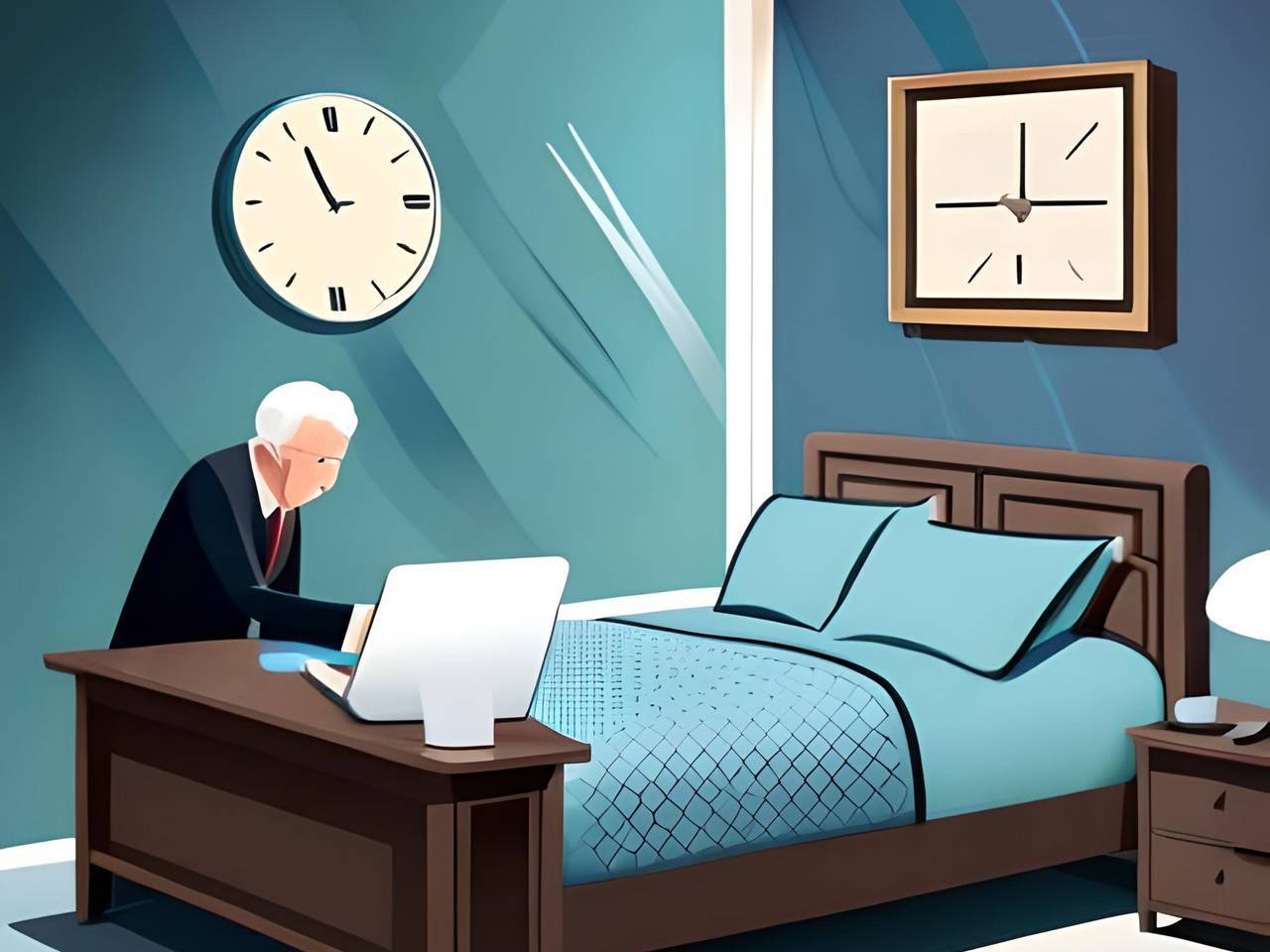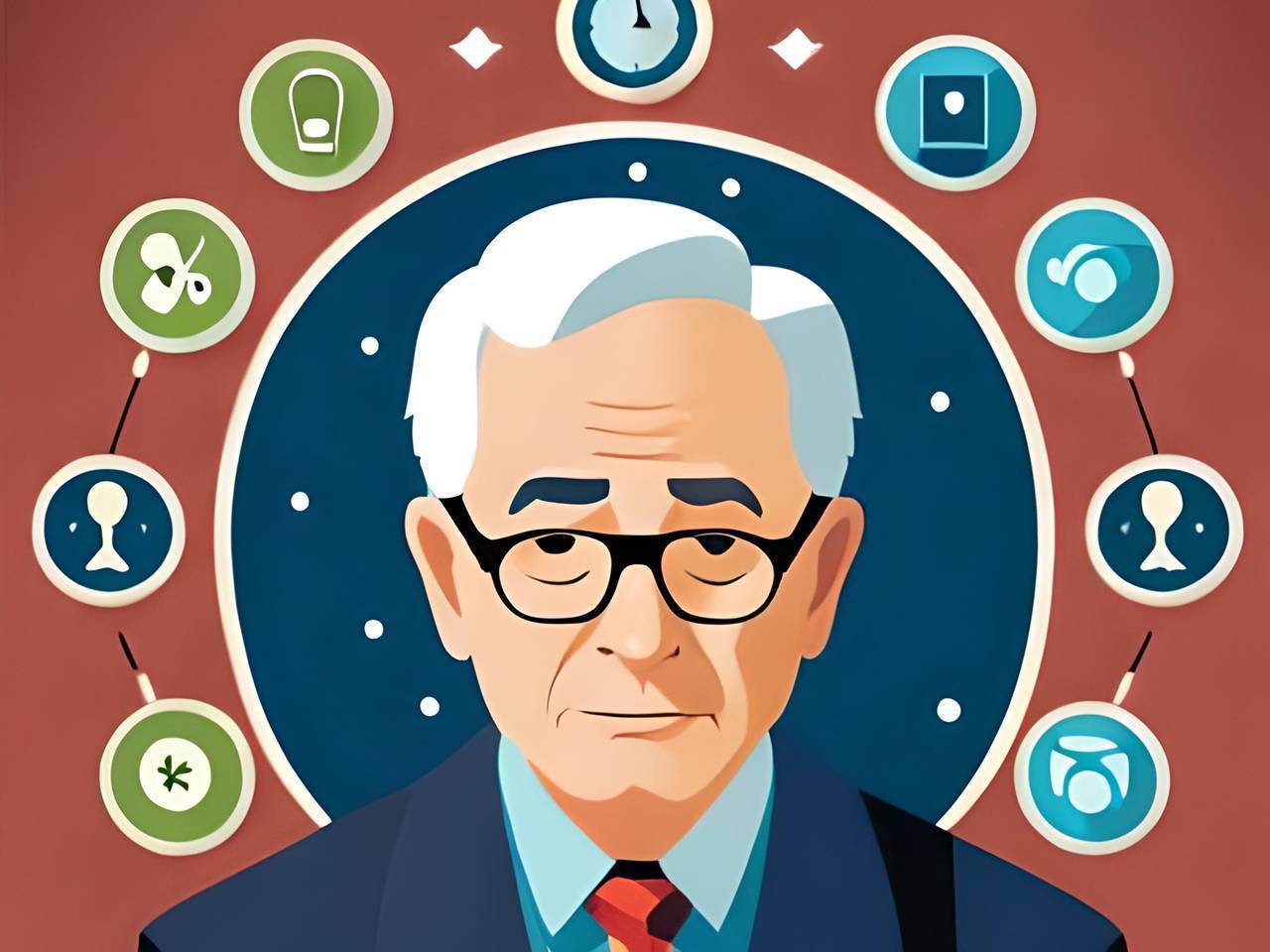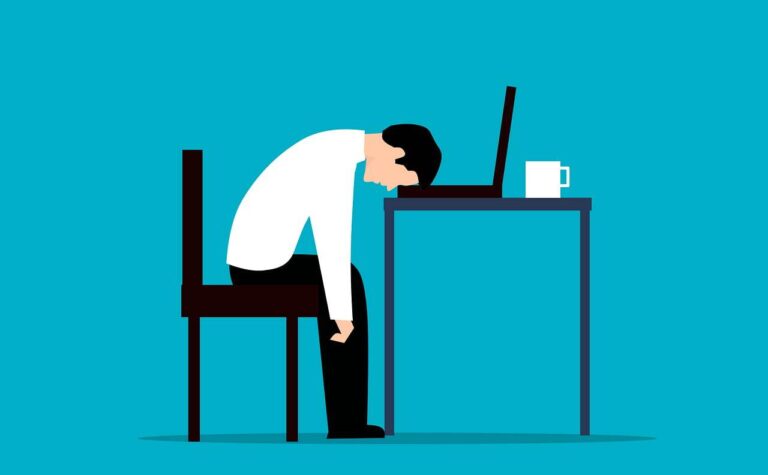Attention Deficit Hyperactivity Disorder (ADHD) is a neurodevelopmental disorder that persists into adulthood in a significant proportion of individuals. Symptoms of ADHD include difficulty maintaining attention, impulsivity, and hyperactivity, which can adversely impact daily functioning and overall quality of life.
A growing body of research has identified a strong connection between sleep and ADHD in older adults, with an estimated 25% to 50% of individuals with ADHD also experiencing sleep disturbances. Understanding the nature of this relationship is crucial for healthcare professionals and caregivers seeking to develop effective strategies for managing both ADHD symptoms and sleep-related challenges.
The following article aims to elucidate the complex interplay between sleep and ADHD in older adults by examining common sleep issues associated with this population, as well as exploring the potential impact these difficulties may have on the clinical presentation and management of ADHD itself. Furthermore, emphasis will be placed on identifying evidence-based approaches to improve sleep quality for those affected by both conditions.
By gaining a deeper understanding of this connection, it is hoped that more targeted interventions can be developed to support optimal functioning and well-being among older adults living with ADHD and comorbid sleep disturbances.
Table of Contents
Understanding ADHD in Older Adults
In the intricate tapestry of aging, understanding ADHD in older adults is crucial, as this chronic condition not only persists into adulthood for most individuals but also presents unique challenges such as increased sleep problems and potentially exacerbating age-related cognitive decline. Managing symptoms effectively becomes even more important in older adults to ensure optimal daily functioning and quality of life.
Factors that play a role in managing ADHD symptoms include medication efficacy, social support, exercise benefits, and addressing age-related cognitive decline.
Medication efficacy may change as individuals age due to altered metabolism or the presence of other medical conditions requiring additional medications. Thus, it is essential for healthcare professionals to monitor and adjust ADHD medications accordingly to maximize their effectiveness while minimizing side effects.
Social support from family members, friends, therapists or support groups can provide emotional encouragement and practical assistance for older adults with ADHD. This support plays a significant role in reducing feelings of isolation and fostering a sense of belonging which can improve overall mental health.

Exercise has been shown to provide numerous benefits for individuals with ADHD across all ages; however, it is particularly important for older adults due to its potential impact on cognitive function and general well-being. Regular physical activity can help alleviate some ADHD symptoms such as impulsivity and hyperactivity while simultaneously promoting brain health by increasing blood flow to essential regions involved in attention regulation. Furthermore, engaging in exercise routines that incorporate balance training or coordination exercises might be particularly beneficial for preventing age-related cognitive decline among those living with ADHD.
By better understanding the challenges faced by older adults with this disorder and implementing targeted strategies such as appropriate medication management, strong social support systems, and regular exercise routines tailored specifically towards their needs, these individuals can lead fulfilling lives despite the presence of ADHD symptoms throughout their golden years.
The Importance of Sleep for Older Adults
Maintaining proper sleep hygiene is crucial for older adults, as it contributes to enhanced cognitive function, emotional well-being, and overall health. Sleep plays a significant role in the management of ADHD symptoms in older adults; hence, adopting strategies to improve sleep quality is essential. These approaches include establishing a consistent sleep schedule, creating an ideal sleep environment, engaging in relaxation techniques before bedtime, considering the importance of exercise during daytime hours to promote better sleep at night, and seeking professional guidance when needed.
| Importance of Exercise | Melatonin Supplements | Cognitive Behavioral Therapy |
|---|---|---|
| Engaging in regular physical activity can help improve sleep quality by reducing stress levels and promoting feelings of relaxation. | Melatonin supplements may be helpful for some individuals experiencing difficulties with their circadian rhythm or falling asleep at an appropriate time. However, it is vital to consult a healthcare professional before starting any supplement regimen. | Cognitive behavioral therapy (CBT) for insomnia has been shown to be effective in improving sleep patterns among older adults by addressing negative thoughts and behaviors that contribute to poor sleep. |
Incorporating these strategies into daily routines can significantly impact the management of ADHD symptoms in older adults through improved sleep quality. Prioritizing proper sleep hygiene practices such as maintaining an optimal sleep environment – dark, cool, and quiet – may lead to better restorative rest each night. Additionally, practicing relaxation techniques like deep breathing exercises or progressive muscle relaxation before bed can help ease anxiety that might hinder falling asleep or staying asleep throughout the night. By taking active steps toward enhancing their sleeping habits and seeking professional support when necessary – such as considering melatonin supplements under medical supervision or pursuing cognitive behavioral therapy – older adults with ADHD will likely experience improved symptom management and overall well-being over time.

Common Sleep Issues in Adults with ADHD
Adults diagnosed with this neurodevelopmental condition often grapple with common sleep issues such as insomnia, restless legs syndrome, and sleep-disordered breathing, which can exacerbate their symptoms and impede daily functioning. Sleep deprivation is a frequent consequence of these sleep disturbances, which can lead to increased inattention, impulsivity, and emotional dysregulation in individuals with ADHD.
The prevalence of insomnia among adults with ADHD is significantly higher compared to the general population, highlighting the importance of addressing sleep concerns in this demographic. A disrupted circadian rhythm could be one potential contributor to the high incidence of sleep problems in adults with ADHD. This internal biological clock regulates various physiological processes including the sleep-wake cycle. Research has shown that a delayed circadian rhythm may contribute to difficulties falling asleep and waking up early for many individuals with ADHD.
Behavioral sleep interventions have been demonstrated to improve not only sleep quality but also overall ADHD symptomatology, daily functioning, and working memory performance. These interventions typically involve establishing consistent bedtime routines, practicing good sleep hygiene habits such as limiting screen time before bed and creating an optimal sleeping environment.
In addition to these behavioral strategies, recent studies suggest that essential fatty acids may play a role in improving both ADHD symptoms and associated sleep disturbances, particularly for those who are iron-deficient or experiencing fragmented nighttime rest. Supplementation of essential fatty acids has been found to potentially alleviate certain aspects of both conditions by promoting balanced neurotransmission within the brain.
Overall, it is crucial for clinicians working with adults diagnosed with ADHD to assess for co-occurring sleep disorders while considering multimodal treatment approaches that encompass pharmacological options alongside evidence-based non-pharmacological strategies such as behavioral therapy techniques and nutritional support when appropriate.
For additional information on How ADHD affects sleep, read the ADHD and Sleep Problems by ADDitude Magazine.
The Connection Between Sleep and ADHD
Ironically, as individuals grapple with the challenges of a neurodevelopmental condition marked by inattention and impulsivity, they also frequently encounter a myriad of nocturnal disturbances that exacerbate their struggles. Sleep problems are common among those with ADHD, affecting approximately 25% to 50% of this population. These issues may stem from an array of factors such as delayed circadian rhythm, impaired arousal and alertness regulation circuits in the brain, and later onset of melatonin production. As a result, sleep quality is often compromised, leading to daytime fatigue which can present through hyperactive and impulsive behaviors or further difficulty concentrating.
| Factor | Impact on Sleep and ADHD Symptoms |
|---|---|
| Delayed Circadian Rhythm | Difficulty falling asleep, staying asleep; worsened ADHD symptoms |
| Impaired Arousal & Alertness Regulation Circuits | Disrupted sleep patterns; daytime fatigue |
| Later Onset of Melatonin Production | Bedtime resistance; increased night awakenings |
Several evidence-based strategies have been shown to improve sleep quality for individuals with ADHD. Implementing good sleep hygiene practices – including maintaining consistent bedtime routines, cutting off caffeine intake several hours before bedtime, avoiding screen time close to bed, and ensuring a dark and quiet sleeping environment – can significantly enhance one’s ability to fall asleep and stay asleep throughout the night. Cognitive Behavioral Therapy for Insomnia (CBT-I) is another effective intervention for adults with ADHD experiencing persistent sleep problems; it focuses on addressing maladaptive thinking patterns related to sleep while providing practical techniques for stress management and relaxation. Additionally, some studies suggest that essential fatty acid supplementation may benefit children with both iron-deficient anemia and disturbed sleep.
The connection between sleep and ADHD emphasizes the importance of addressing nocturnal disturbances in conjunction with managing core symptoms related to attention deficit hyperactivity disorder itself. By incorporating evidence-based interventions such as improving sleep hygiene, engaging in cognitive behavioral therapy, and considering essential fatty acid supplementation in certain cases, individuals with ADHD can potentially experience substantial improvements not only in their sleep quality but also in overall functioning and well-being.
For additional information on the connection between sleep and ADHD, read the Sleep and ADHD by National Sleep Foundation.

Strategies for Improving Sleep Quality
Addressing nocturnal disturbances is crucial for individuals with ADHD, as implementing evidence-based strategies can lead to significant enhancements in sleep quality and overall well-being.
One essential approach to improving sleep involves practicing good sleep hygiene, which includes maintaining a consistent bedtime routine, creating a comfortable sleeping environment, limiting exposure to electronic devices before bedtime, and avoiding stimulants such as caffeine or nicotine close to bedtime.
Additionally, cognitive behavioral therapy for insomnia (CBT-I) has been shown to be an effective treatment for adults with sleep problems related to ADHD by addressing the thoughts and behaviors that contribute to poor sleep.
Another beneficial strategy for enhancing sleep quality in individuals with ADHD involves incorporating essential fatty acids into their diet. Research suggests that supplementation of essential fatty acids may benefit iron-deficient children with both ADHD and sleep disturbances.
Reducing caffeine intake throughout the day is another dietary consideration that can positively impact sleep quality; consumption of caffeinated beverages such as coffee or soda can exacerbate difficulties in falling asleep or staying asleep.
Incorporating these strategies into daily routines can greatly improve the quality of life for those living with ADHD and experiencing disrupted sleep patterns. It is important for healthcare professionals working with patients affected by both ADHD and insomnia to encourage the adoption of healthy habits like proper sleep hygiene practices alongside any necessary medical interventions.
By addressing both conditions simultaneously through a comprehensive treatment plan tailored specifically to individual needs, individuals impacted by ADHD-related sleep issues are more likely experience positive outcomes on their path toward improved well-being.
Medications and Other Treatment Options
In addition to the aforementioned strategies for improving sleep quality, there are various medications and treatment options available that can help manage ADHD symptoms and enhance sleep in older individuals. These treatments focus on addressing underlying causes of sleep disturbances, as well as providing alternative ways to manage ADHD symptoms without solely relying on medication.
This section will discuss natural remedies, therapy options, medication alternatives, sleep hygiene practices, and nutritional interventions that can contribute to better sleep outcomes for those with ADHD.
- Natural remedies: Some individuals may find relief from sleep disturbances related to ADHD through the use of herbal supplements such as valerian root or melatonin. However, it is essential to consult a healthcare professional before incorporating any new supplement into one’s routine.
- Therapy options: Cognitive behavioral therapy (CBT) has been shown to be effective in treating insomnia, particularly when combined with proper sleep hygiene practices. CBT can help individuals identify and change negative thought patterns that may be contributing to their difficulty sleeping.
- Medication alternatives: In some cases, non-stimulant medications like atomoxetine or guanfacine may be prescribed for managing ADHD symptoms while causing fewer adverse effects on sleep compared to stimulant medications.
- Sleep hygiene: Establishing a consistent bedtime routine and creating an optimal environment for restful sleep are crucial components of good sleep hygiene. This includes limiting caffeine intake close to bedtime and reducing exposure to electronic devices before going to bed.
- Nutritional interventions: A balanced diet rich in nutrients such as iron, magnesium, vitamin D, and omega-3 fatty acids has been linked with improvements in both ADHD symptoms and overall sleep quality.
It is important for individuals experiencing difficulties with both ADHD symptom management and poor-quality sleep not only explore these various treatment approaches but also maintain open communication with their healthcare providers. By working together towards developing a comprehensive treatment plan tailored specifically for each unique situation, they have better chances of achieving improved mental health outcomes alongside more restful nights.

Lifestyle Changes for Better Sleep and ADHD Management
Implementing lifestyle modifications can significantly enhance the management of cognitive and behavioral symptoms while simultaneously promoting more restorative sleep patterns for individuals with attention-related challenges.
Natural remedies, such as essential fatty acids, have been shown to benefit iron-deficient and sleep-disturbed children with ADHD.
Moreover, adhering to proper sleep hygiene practices can greatly improve the quality of sleep in both children and adults suffering from ADHD.
These practices may include maintaining a consistent bedtime routine, avoiding stimulating activities close to bedtime, creating a conducive sleeping environment that is dark, cool, and quiet, reducing caffeine intake in the evening hours, limiting screen time before bed, and encouraging regular physical activity during the day.
Cognitive behavioral therapy (CBT) has proven effective in improving sleep quality among adolescents and adults with ADHD who suffer from insomnia or other sleep disorders.
CBT focuses on identifying maladaptive thought patterns that contribute to poor sleep and replacing them with healthier beliefs about sleep.
This therapeutic approach offers long-term benefits by teaching patients strategies for managing stressors related to their condition.
In addition to CBT, incorporating stress management techniques into daily routines can further promote better mental health outcomes for individuals dealing with ADHD-related challenges.
Incorporating these lifestyle changes into daily routines can provide significant relief from both ADHD symptoms and associated sleep disturbances.
By addressing these interconnected issues through a combination of natural remedies, improved sleep hygiene practices, cognitive behavioral therapy interventions tailored specifically towards insomnia sufferers within the ADHD population as well as employing effective stress management methods; individuals struggling with attention deficits can achieve greater overall well-being while also experiencing more rejuvenating periods of rest at night.
Ultimately this holistic approach not only supports symptom relief but fosters long-term improvements in health status among those afflicted by this complex neurodevelopmental disorder.
Conclusion
In conclusion, the intricate connection between sleep and ADHD in older individuals cannot be overstated. A comprehensive understanding of this relationship is vital for clinicians, caregivers, and affected individuals to implement effective strategies that enhance sleep quality and alleviate ADHD symptoms.
By addressing both sleep and ADHD through accurate diagnosis and treatment, there lies immense potential to significantly improve the overall well-being of millions of older adults.
Furthermore, the importance of adopting evidence-based lifestyle changes alongside medical interventions must not be overlooked. As research continues to unveil novel insights into the complex interplay between sleep and ADHD in older populations, it is imperative that stakeholders stay informed and adopt clinically proven approaches.
The future holds great promise for enhancing the lives of those affected by ADHD through a deeper comprehension of its connection with sleep disturbances.

FAQs
How do the symptoms of ADHD in older adults differ from those in children and younger adults?
In older adults, ADHD diagnosis presents distinct challenges as aging brains exhibit altered symptom management. Cognitive behavioral therapy and lifestyle modifications become paramount, addressing nuances diverging from pediatric manifestations.
Are there specific sleep disorders that are more prevalent in older adults with ADHD compared to younger individuals with ADHD?
Sleep apnea, insomnia prevalence, restless leg syndrome, and circadian rhythm changes are more common in older adults with ADHD. Age-related sleep changes may exacerbate existing ADHD symptoms and contribute to sleep disorders.
How can caregivers and family members support older adults with ADHD in addressing their sleep problems?
To ameliorate sleep disturbances in older adults with ADHD, caregivers can promote sleep hygiene, implement relaxation techniques, encourage lifestyle changes, establish consistent bedtime routines, and offer unwavering support.
Are there any age-specific considerations for the use of medications to manage sleep and ADHD issues in older adults?
Medication safety is crucial for older adults; age-appropriate therapies should be considered alongside cognitive behavioral interventions, lifestyle modifications, and sleep hygiene practices to effectively manage sleep and ADHD issues.
How do comorbid medical conditions in older adults, such as cardiovascular diseases or diabetes, impact the relationship between sleep and ADHD
Astonishingly, comorbid interactions in older adults with cardiovascular diseases or diabetes exacerbate ADHD-related sleep problems. Sleep hygiene, physical activity benefits, and cognitive behavioral therapy are essential non-pharmacological interventions for improving sleep quality in this population.


